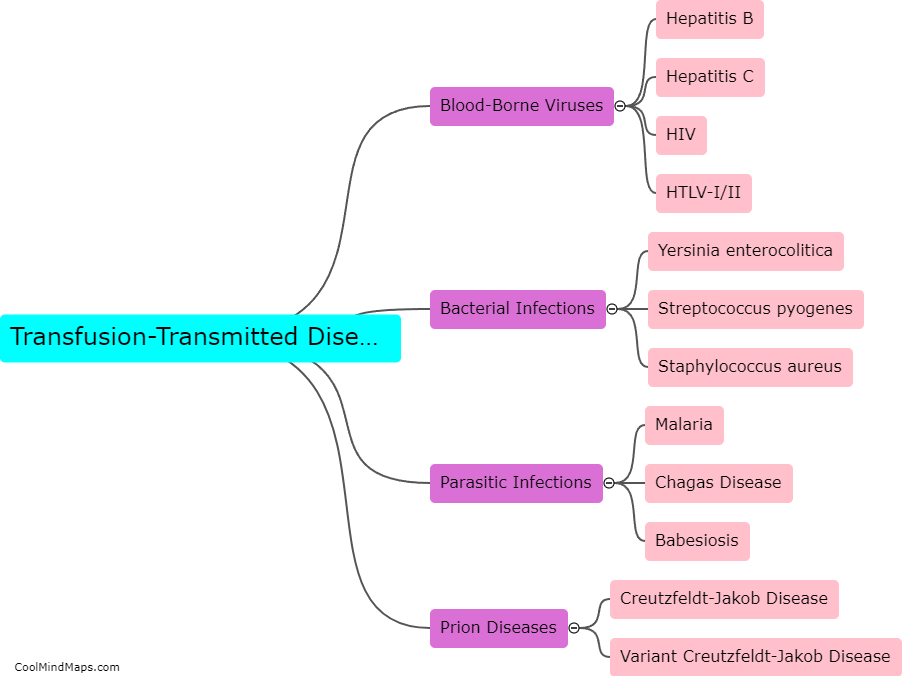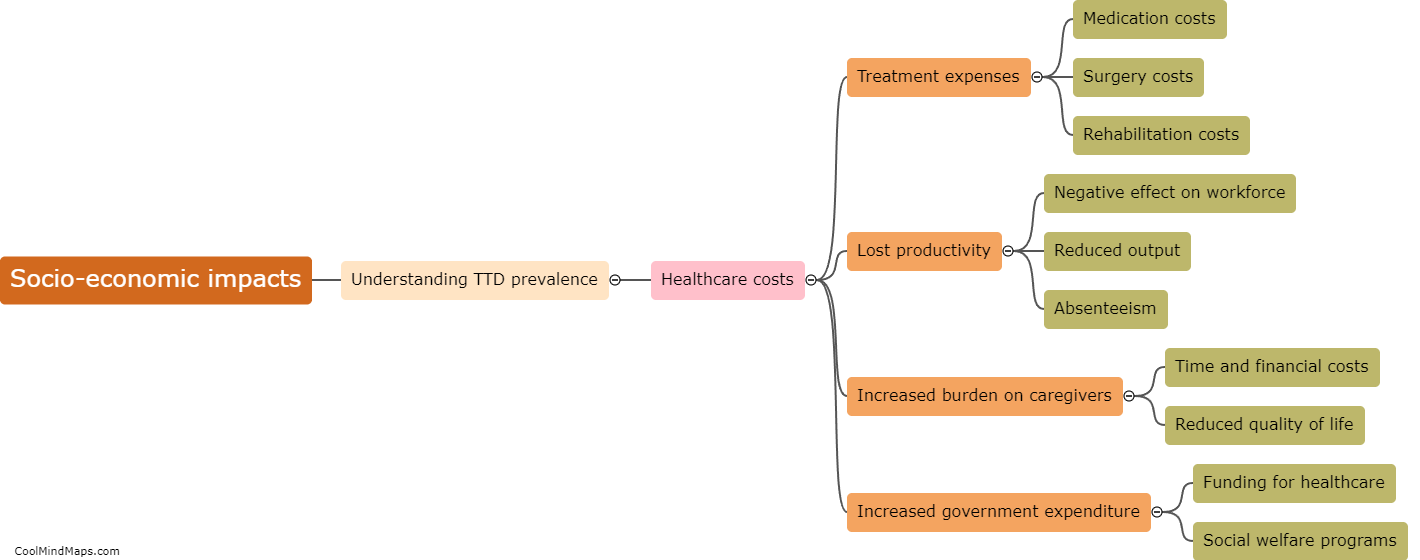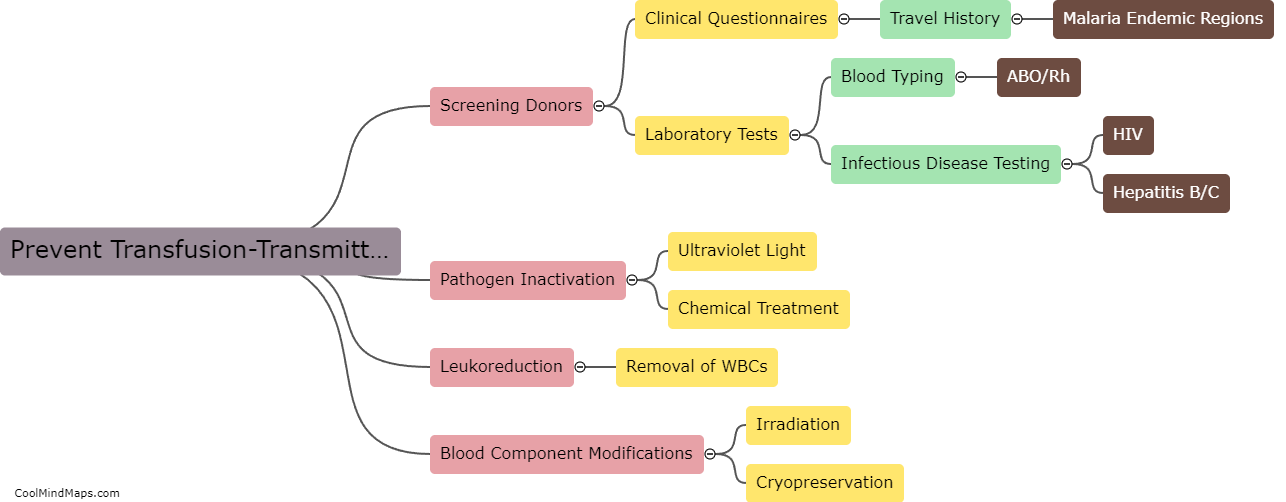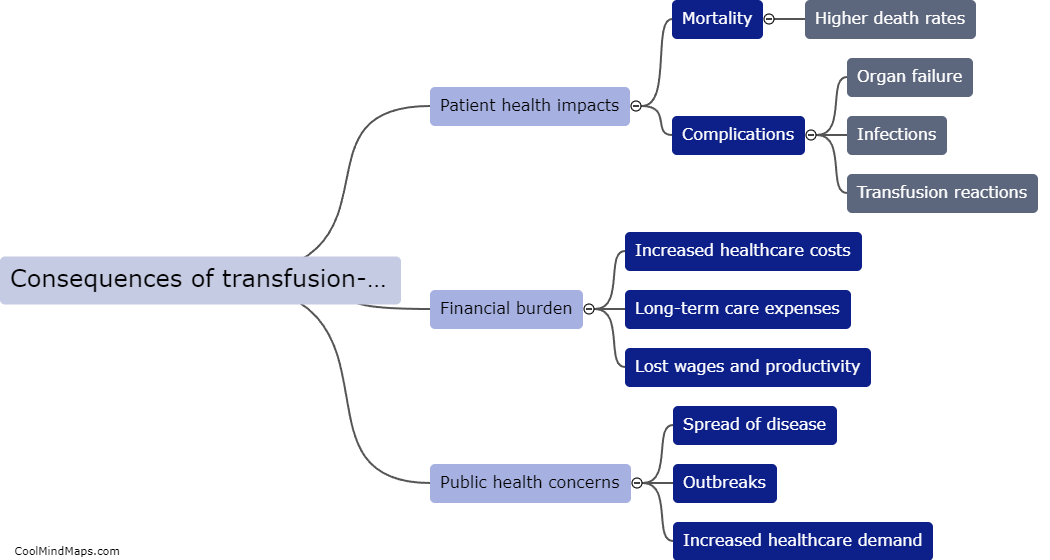What are transfusion-transmitted diseases?
Transfusion-transmitted diseases are illnesses that can be passed from one person to another through the transfusion of blood or blood products. These diseases include viral infections such as HIV, hepatitis B and C, and West Nile virus, as well as bacterial and parasitic infections like syphilis and malaria. Even with advanced screening methods, there is still a small risk of transfusion-transmitted diseases, making it crucial to continually check and test blood products before they are used in transfusions.

This mind map was published on 25 June 2023 and has been viewed 104 times.











